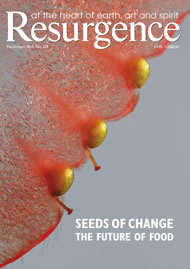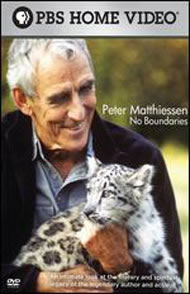It is not easy to define Peter Matthiessen; he is a novelist, explorer, nature writer, environmentalist, and Zen monk. This multi-facet character is aptly subtitled in this first documentary film about his life, Peter Matthiessen: No Boundaries.
Born in 1927 in New York City, Matthiessen’s life path has been rocky one. Married three times, he confesses he did not have much time to spend with his children. Before he came to be known for his writings in the 1950s, he served at the US Navy, then as CIA agent and later as a fisherman. A Yale graduate in English literature, Matthiessen co-founded The Paris Review in 1953, which is still a reputed literary magazine.
In 1959 (three years before Rachel Carson’s Silent Spring), Matthiessen published Wildlife in America, a report of his travels and interviews about the loss of wild creatures in North America. This work was a breakthrough in American environmentalist movement. Indeed, first-hand reporting (sort of elegy) on the disappearance of meaningful life styles and pristine landscapes by the relentless encroachment of the modern industrial societies has been a common thread running through Matthiessen’s works.
Matthiessen is one of a few writers to have been recognized by the prestigious US National Book Award. In 1966, his novel At Play in the Fields of the Lord about clashes between about tribal culture and Western civilization in South America (which was made into a Hollywood film in 1991) was a selected as a Finalist. In 1973, his novel The Three Where Man Was Born: The African Experience (co-authored with Eliot Porter) was also a Finalist. In 1979, his best-known work ever, The Snow Leopard (first published in 1975), a travel and spiritual report to a remote Himalayan area on Nepal-Tibet border with biologist George Schaller, won the first award in non-fiction. In 2008, his trilogy The Shadow Country, first published in the 1990s narrating the life and death of a Florida farmer and outlaw Mr. Watson, won the first award in fiction.
Like many readers, I was fascinated by The Snow Leopard, and in 2008 I was delighted to meet and chat with Matthiessen as he came for a lecture event in Salt Lake City, where I live.
Matthiessen was introduced to Zen Buddhism in 1969 through his second wife, Debra, who died of cancer three years later. (She appears frequently in the pages of The Snow Leopard). Matthiessen then studied Zen in the US and Japan, which he documented in Nine-Headed Dragon River: Zen Journals 1969-1982. Matthiessen still practices and teaches Zen in New York.
Matthiessen told me that although many people know him for his Zen writings, only two out of his thirty books, The Snow Leopard and Nine-Headed Dragon River, are related to Buddhism. This is true, but one can sense Zen view in many of Matthiessen’s other works. For example, a quotation from Dogen (a thirteenth-century Zen master) sets the stage for his fascinating book The Birds of Heaven: Travels with Cranes (2001). The quote reads: “The World? Moonlit water drops from the crane’s bill.”
Many of Matthiessen’s works are now classics. Despite his remarkable literary and environmentalist accomplishments, no definite biography of Matthiessen has been written; this documentary is thus a valuable opportunity to look at his legacy. His publications include 10 novels and 21 non-fiction books, but as some commentators say in the film Matthiessen’s true achievement is that he is one of a handful of great American writers who has combined nature and spiritual culture in his writings, and art and social activism in his own life and personality.
Rasoul Sorkhabi is Research Professor of Geology at the University of Utah in Salt Lake City. His articles and reviews have appeared in various journals, including Resurgence magazine (issues 231, 251, and 253).








